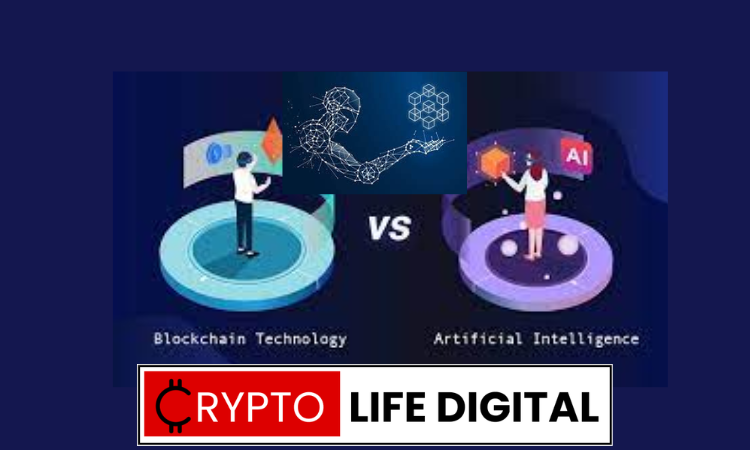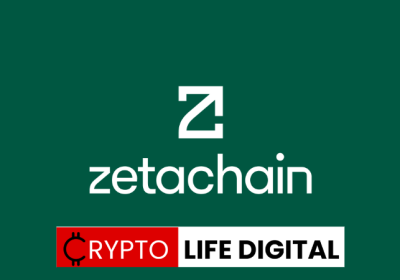Intercession Of Artificial Intelligence And Blockchain Technology.

Artificial Intelligence (AI) and Blockchain are two emerging technologies that have the potential to transform various industries. AI refers to the creation of machines that can perform tasks that typically require human intelligence, such as speech recognition, decision-making, and visual perception. On the other hand, Blockchain is a decentralized, distributed ledger technology that enables secure and transparent record-keeping of transactions. When these two technologies are combined, they can create a powerful tool that has numerous applications across various industries.
In this article, we will explore the intercession of Artificial Intelligence and Blockchain technology, their benefits and limitations, and how they can work together to create value. We will also look at some of the current and potential use cases for this technology combination.
Read Also: Shiba Inu Highlights Some Benefits Of Using Shibarium. Check It Out
Benefits and limitations of Artificial Intelligence
Artificial Intelligence has numerous benefits that make it an attractive technology for businesses and organizations. One of the most significant advantages of AI is its ability to process large amounts of data quickly and accurately. This makes it ideal for tasks such as data analysis, predictive analytics, and natural language processing.
AI is also highly adaptable, which means that it can learn and improve over time as it processes more data. This makes it an ideal technology for tasks that require constant improvements, such as fraud detection, risk management, and customer service.
However, AI also has some limitations that can hinder its adoption. One of the biggest limitations of AI is its reliance on data. Without a sufficient amount of data, AI algorithms may not be able to make accurate predictions or decisions. Additionally, AI may be biased or make incorrect decisions if the data it is trained on is biased or incomplete.
Benefits and limitations of Blockchain Technology
Blockchain technology also has several benefits that make it an attractive technology for businesses and organizations. One of the most significant advantages of blockchain is its ability to create a secure and transparent record of transactions. This can be particularly useful in industries such as finance, healthcare, and supply chain management, where trust and transparency are essential.
Blockchain technology is also highly decentralized, which means that it is not controlled by any single entity. This can make it more secure and resistant to attacks or data breaches. Additionally, blockchain can be used to create smart contracts, which are self-executing contracts that can be programmed to trigger specific actions based on predefined criteria.
However, blockchain technology also has some limitations that can hinder its adoption. One of the biggest limitations of blockchain is its scalability. Current blockchain networks can be slow and unable to handle large volumes of transactions, which can limit their usefulness in certain industries. Additionally, blockchain can be complex to implement and requires significant computational resources to maintain.
Combining AI and Blockchain
When AI and blockchain are combined, they can create a powerful tool that has numerous applications across various industries. The combination of these two technologies can address some of the limitations of each technology, creating a more powerful and robust solution.
One of the most significant benefits of combining AI and blockchain is their ability to create secure and transparent systems that can process large amounts of data quickly and accurately. This can be particularly useful in industries such as finance, healthcare, and supply chain management, where trust and transparency are essential.
Read Also: Deaton And Some Other Analysts Tag XRP As An Attractive Investment. Here’s Why
For example, in the finance industry, combining AI and blockchain can enable more accurate fraud detection and risk management. AI can be used to analyze large amounts of data and identify patterns or anomalies that may indicate fraud or risk. The results of this analysis can then be recorded on a blockchain, creating a transparent and immutable record of the transaction.
In healthcare, combining AI and blockchain can enable more secure and accurate record-keeping of patient data. AI can be used to analyze patient data and identify patterns or trends that may indicate health issues or risk factors. The results of this analysis can then be recorded on a blockchain, creating a secure and transparent record of the patient’s medical history.
In supply chain management, combining AI and blockchain can enable more efficient and transparent tracking of goods and services. AI can be used to analyze data from sensors and other sources to track the movement of goods along the supply chain. The results of this analysis can then be recorded on a blockchain, creating a transparent and immutable record of the transaction.
Another potential use case for combining AI and blockchain is in the creation of decentralized autonomous organizations (DAOs). A DAO is a type of organization that is run entirely by computer code and is controlled by its members, who hold voting rights based on the number of tokens they own. By combining AI and blockchain, DAOs can be created that are more efficient, transparent, and autonomous.
However, there are also some potential challenges to combining AI and blockchain. One of the biggest challenges is the computational resources required to run both AI and blockchain algorithms. This can make it difficult to implement these technologies in certain industries, particularly in developing countries or in industries with limited resources.
Another challenge is the potential for bias in AI algorithms. If the data used to train an AI algorithm is biased, this bias can be amplified when the algorithm is used in combination with a blockchain. To address this challenge, it is important to ensure that the data used to train AI algorithms is diverse and representative of the population it is intended to serve.
In conclusion, the combination of AI and blockchain has the potential to transform various industries by creating more efficient, transparent, and secure systems. By leveraging the strengths of both technologies, businesses and organizations can create solutions that are more accurate, adaptable, and resilient. However, there are also potential challenges to implementing this technology combination, particularly in industries with limited resources or where bias in AI algorithms may be a concern. Nonetheless, the potential benefits of combining AI and blockchain make it an area of ongoing research and development, with numerous exciting applications yet to be explored.
Follow us on Twitter, Facebook, Telegram, and Google News

Dr. Olajide Samuel juggles the demands of medical studies with a passion for cryptocurrency. A seasoned blogger, Olajide shares his vast global knowledge of the crypto space, offering insights to enthusiasts. Despite his busy schedule, his commitment to crypto remains strong, and he actively seeks ways to contribute to its future.










